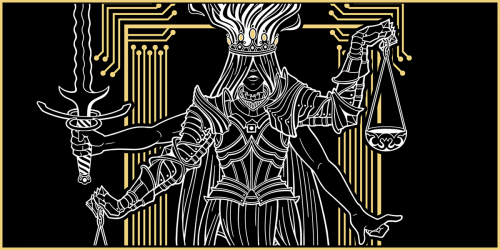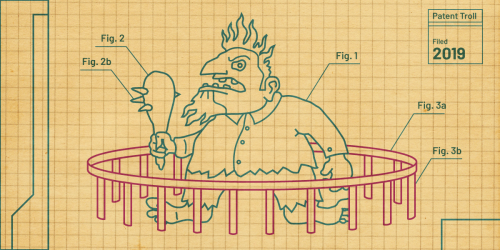Foreign languages have been taught, and studied, for thousands of years. People who teach languages are the last folks that should be dealing with patent threat letters—but incredibly, that’s exactly what has happened to Mihalis Eleftheriou. Hodder and Stoughton, a large British publisher, has sent a letter to Eleftheriou claiming that it has rights to a patent that covers recorded language lessons, and demanding that he stop providing online courses.
Eleftheriou teaches a variety of online classes through his Language Transfer project. The courses are simple audio files uploaded to platforms like Soundcloud and YouTube. So you can imagine his surprise when he received a letter [PDF] from Hodder and Stoughton, saying that his project infringes a U.S. patent.
Hodder and Stoughton contends that Language Transfer infringes U.S. Patent No. 6,565,358, titled “Language teaching system.” The patent essentially covers a language lesson on tape. In the patent’s words, it claims a particular sequence of “expression segments” to be played on a “recorded medium” using a “playing device.” In plain English, the “expression segments” amount to the following sequence: the teacher asks how to translate a phrase, there is a short pause, an example student attempts to answer the question, and then the teacher provides the correct answer.
At this point you might be asking yourself, wait what? How on Earth did someone get a patent on putting a language lesson on tape? Those are good questions. The answer, frankly, is that the Patent Office needs to do a much better job.
Today EFF has sent a response [PDF] to Hodder and Stoughton on Eleftheriou’s behalf. We explain that the ’358 patent is plainly invalid under the Supreme Court’s 2014 decision in Alice v. CLS Bank. That decision holds that an abstract idea does not become eligible for patent protection merely by being implemented on conventional or generic technology. The ’358 patent—which claims a sequence of human expressions on an ordinary tape—is a quintessential example of the kind of patent that fails this test. It is no more patentable than a sequence of musical notes on tape.
Our letter also explains that the ’358 patent is invalid as anticipated and obvious. Any student that has ever sat in a language class has probably heard the sequence of “expression segments” claimed in the patent. A search quickly revealed prior art. Indeed, the named inventor, Michel Thomas, was featured in a BBC documentary in 1997, more than three years before the patent application was filed. This documentary includes a number of sequences that match the patent’s claims. Hodder and Stoughton’s lawyer himself claimed that the patent would cover a recording done via “television system,” so has essentially admitted that the documentary is invalidating prior art.
Hodder and Stoughton not only demanded that Eleftheriou stop making Language Transfer course available in the United States, it also demanded that he abandon plans to publish a book about language instruction. This is an abuse of the patent system. First, Hodder and Stoughton has never even seen Eleftheriou’s book. The book will be Eleftheriou’s original work about languages and his language teaching method, and not about editing audio lessons. Second, the patent is invalid. But even more fundamentally, a patent does not allow this kind of censorship.
Hodder and Stoughton appears to be using a patent to make an end-run around the idea/expression dichotomy in copyright law. Copyright allows authors to protect particular expression (their prose), but not ideas (like building suspense via cliffhangers). In language teaching, this might play out so that someone can copyright their specific written lessons or recorded tapes, but not the idea of teaching a second language through immersion. Abstract ideas also cannot be patented. They are fundamental building blocks of knowledge, and not subject to exclusive ownership. Rather, they must remain available to future creators and inventors.
Last week, we visited Congress and presented the ’358 patent to staffers there as an example of how important it is to maintain common-sense limits on patentable subject matter. The patent lobby—in the form of the Intellectual Property Owners Association and the American Intellectual Property Law Association—wants Congress to undo Alice through legislation. These groups are pushing to change the law so that everything is eligible for patent protection unless it is “solely in the human mind.” The ’358 patent shows what a disaster such legislation would be. It could make the patent system a kind of “super copyright” where people can monopolize ideas just by putting them on tape.
Eleftheriou will continue to offer free language courses to people within the United States. We hope Hodder and Stoughton comes to its senses and abandons its absurd demands.










